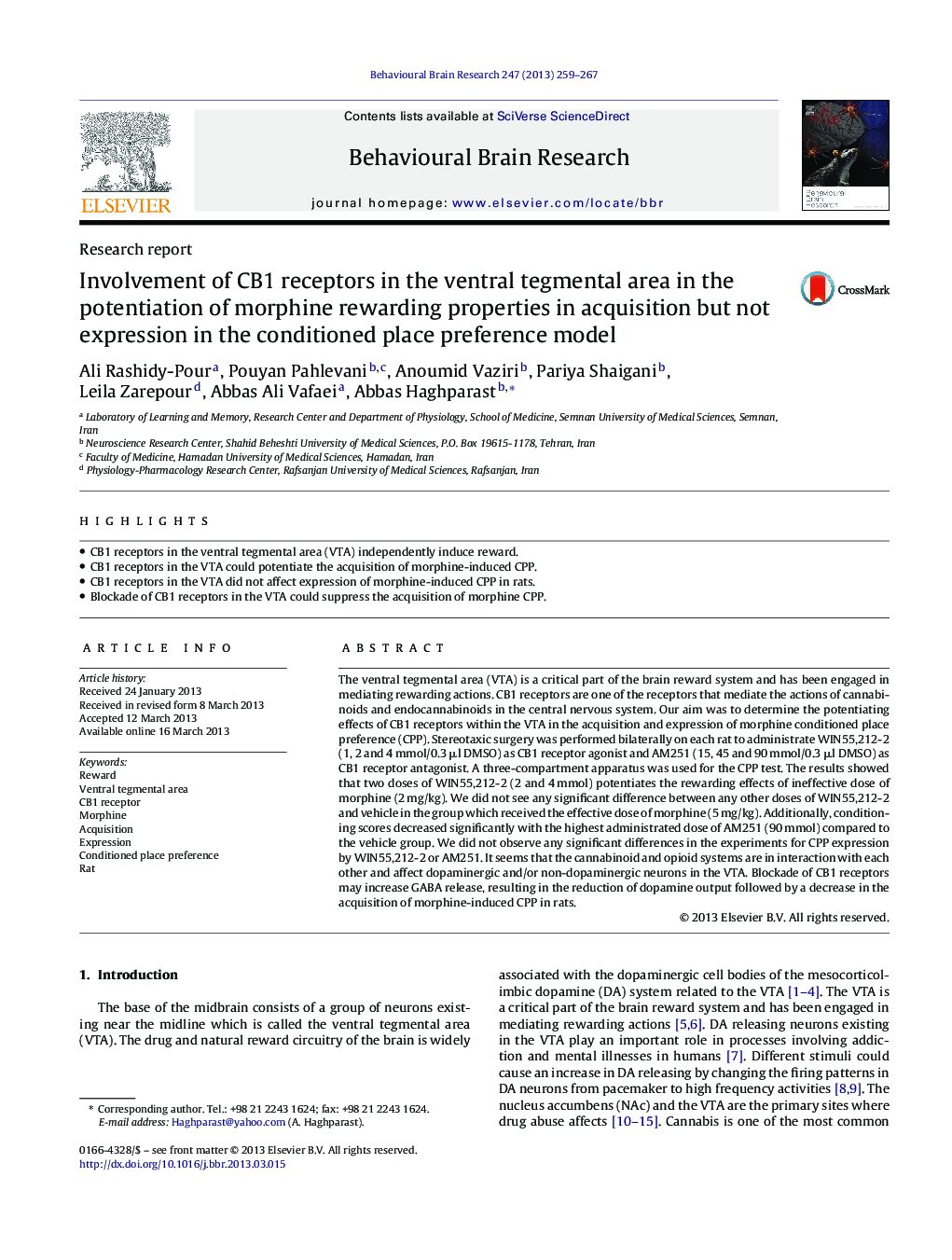| Article ID | Journal | Published Year | Pages | File Type |
|---|---|---|---|---|
| 4312690 | Behavioural Brain Research | 2013 | 9 Pages |
•CB1 receptors in the ventral tegmental area (VTA) independently induce reward.•CB1 receptors in the VTA could potentiate the acquisition of morphine-induced CPP.•CB1 receptors in the VTA did not affect expression of morphine-induced CPP in rats.•Blockade of CB1 receptors in the VTA could suppress the acquisition of morphine CPP.
The ventral tegmental area (VTA) is a critical part of the brain reward system and has been engaged in mediating rewarding actions. CB1 receptors are one of the receptors that mediate the actions of cannabinoids and endocannabinoids in the central nervous system. Our aim was to determine the potentiating effects of CB1 receptors within the VTA in the acquisition and expression of morphine conditioned place preference (CPP). Stereotaxic surgery was performed bilaterally on each rat to administrate WIN55,212-2 (1, 2 and 4 mmol/0.3 μl DMSO) as CB1 receptor agonist and AM251 (15, 45 and 90 mmol/0.3 μl DMSO) as CB1 receptor antagonist. A three-compartment apparatus was used for the CPP test. The results showed that two doses of WIN55,212-2 (2 and 4 mmol) potentiates the rewarding effects of ineffective dose of morphine (2 mg/kg). We did not see any significant difference between any other doses of WIN55,212-2 and vehicle in the group which received the effective dose of morphine (5 mg/kg). Additionally, conditioning scores decreased significantly with the highest administrated dose of AM251 (90 mmol) compared to the vehicle group. We did not observe any significant differences in the experiments for CPP expression by WIN55,212-2 or AM251. It seems that the cannabinoid and opioid systems are in interaction with each other and affect dopaminergic and/or non-dopaminergic neurons in the VTA. Blockade of CB1 receptors may increase GABA release, resulting in the reduction of dopamine output followed by a decrease in the acquisition of morphine-induced CPP in rats.
